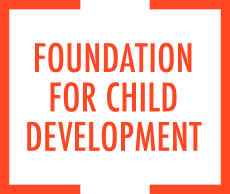https://www.fcd-us.org/achieving-full-day-kindergarten-in-new-mexico-a-case-study/
New Mexico, a state rarely in the forefront of educational innovation, passed legislation in 2000 to phase-in voluntary full-day kindergarten (FDK) classes for all five-year-olds. While over half of the nation’s kindergartners attended FDK that year, in the vast majority of states, full-day classes were offered inconsistently on a district-by-district basis; only eight states, all of which are located in the South or Southeast, provided state-wide access. This case study describes how New Mexico became the first state outside of those regions to establish universal access to full-day kindergarten.
This case study traces the evolution and development of New Mexico’s full-day kindergarten program, a policy option that emerged on the state’s political landscape in the early 1990s, but failed for the better part of the decade to generate sufficient backing. The program’s legislative history reveals the complex processes and factors that determine whether ideas are translated into law. Many individuals, organizations and institutions contributed to the state’s eventual decision to finance full-day classes. But the successful passage of the legislation ultimately offers a powerful example of the ways in which savvy advocacy can influence education reform and state-level policymaking.
